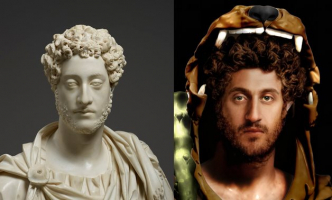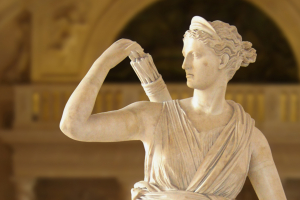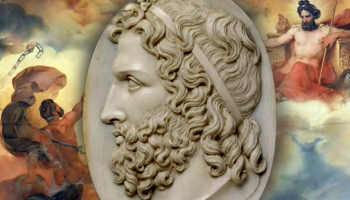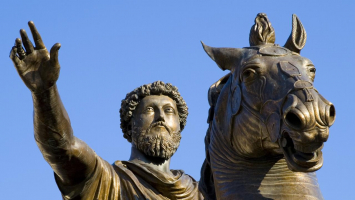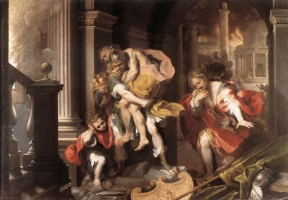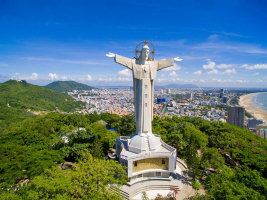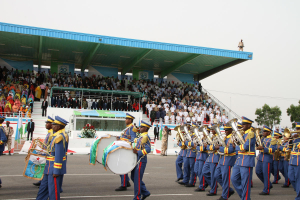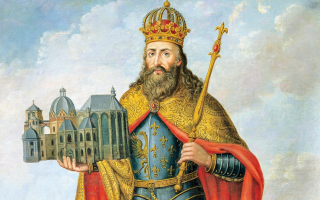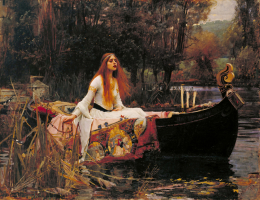Top 12 Most Famous Roman Generals
The Romans engaged in massive land grabs, and their success was due not only to the political qualities of their elite but also to their military prowess and ... read more...the strategic ability of their Generals. They were in charge of the Republic's and Empire's military growth. Roman generals were frequently career statesmen who were remembered for reasons other than their service in the Roman Army. Find out with Toplist the most famous Roman generals, look at the list to discover a little more information about them.
-
One of the most famous Roman generals is Publius Cornelius Scipio Africanus. He (236/235-183 BC) was a Roman general and statesman most known for his role in Rome's Second Punic War triumph over Carthage. His greatest military triumph was defeating Hannibal at the Battle of Zama in 202 BC, and he is widely recognized as one of the best military leaders and strategists of all time. This triumph in Africa earned him the title Africanus.
The Battle of Ilipa in 206 BC culminated in Scipio's conquest of Carthaginian Iberia over Hannibal's brother Mago Barca. Scipio was considered a hero by the Roman people, chiefly for his victories over Carthage, but he had many opponents, including Cato the Elder, who despised him. In 187 BC, he and his brother were prosecuted in a sham trial for bribes they allegedly received from Seleucid king Antiochos III during the Roman-Seleucid War. Scipio left Rome and retreated from public life at his house in Liternum, disillusioned by his peers' ingratitude.
Many regard Scipio as one of Rome's greatest generals; he never lost a fight. He was skilled in both strategy and tactics, and he had the ability to instill trust in his soldiers. A descendant of Scipio, Metellus Scipio, led legions against Julius Caesar in Africa until his defeat at the Battle of Thapsus in 49 BC. Because it was widely believed that only a Scipio could win a battle in Africa, Julius Caesar assigned a distant relative of Metellus to his staff in order to appear to have a Scipio fighting for him as well.
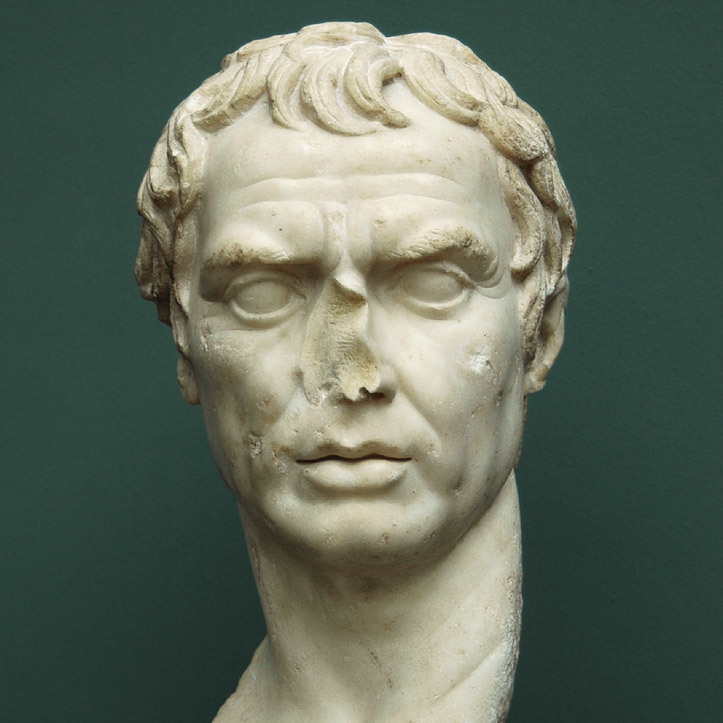
en.wikipedia.org 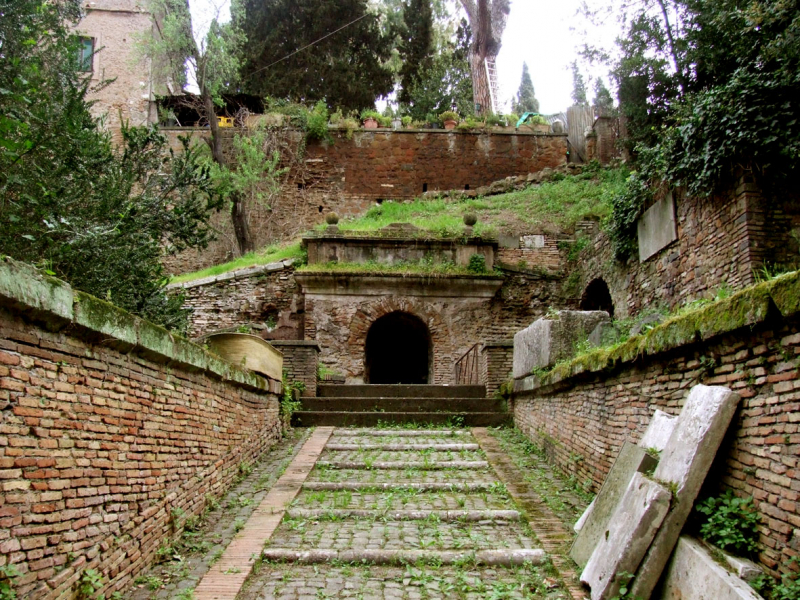
Entrance to the Tomb of the Scipios -en.wikipedia.org -
Sulla, sometimes known as Lucius Cornelius Sulla Felix (138-78 BC), was a Roman general and statesman. He won the first large-scale civil war in Roman history and became the Republic's first man to gain power by force.
Sulla had the distinction of serving as consul twice and resurrecting the dictatorship. He was a skilled and clever general who won countless battles against foreign and domestic opponents. Sulla rose to fame during his superior Gaius Marius's fight against the Numidian king Jugurtha, whom he captured as a result of Jugurtha's betrayal by the king's allies. During the Cimbrian War, he defeated Germanic tribes, and during the Social War, he defeated Italic tribes. He received the Grass Crown for his courage during the Battle of Nola.
Sulla was a key figure in Rome's protracted political conflict between the optimates and populares factions. He was a leader of the optimates, who fought populist changes urged by the populares, led by Marius, in order to protect senatorial power. Sulla marched on Rome in an unusual move, defeating Marian forces in battle, in a dispute over command of the war against Mithridates, which was initially awarded to Sulla by the Senate but rescinded as a result of Marius' machinations. Nonetheless, the populares seized power after he fled to Asia with his army. In 82 BC, he returned victorious from the east, marched on Rome a second time, and crushed the populares and their Italian allies at the Battle of the Colline Gate. He then resurrected the dictatorship, which had been dormant since the Second Punic War over a century previously.
He used his power to cleanse his opponents, modify Roman constitutional rules, restore the Senate's dominance, and limit the power of pleb tribunes. Sulla went to private life after resigning as dictator in 79 BC and died the following year.
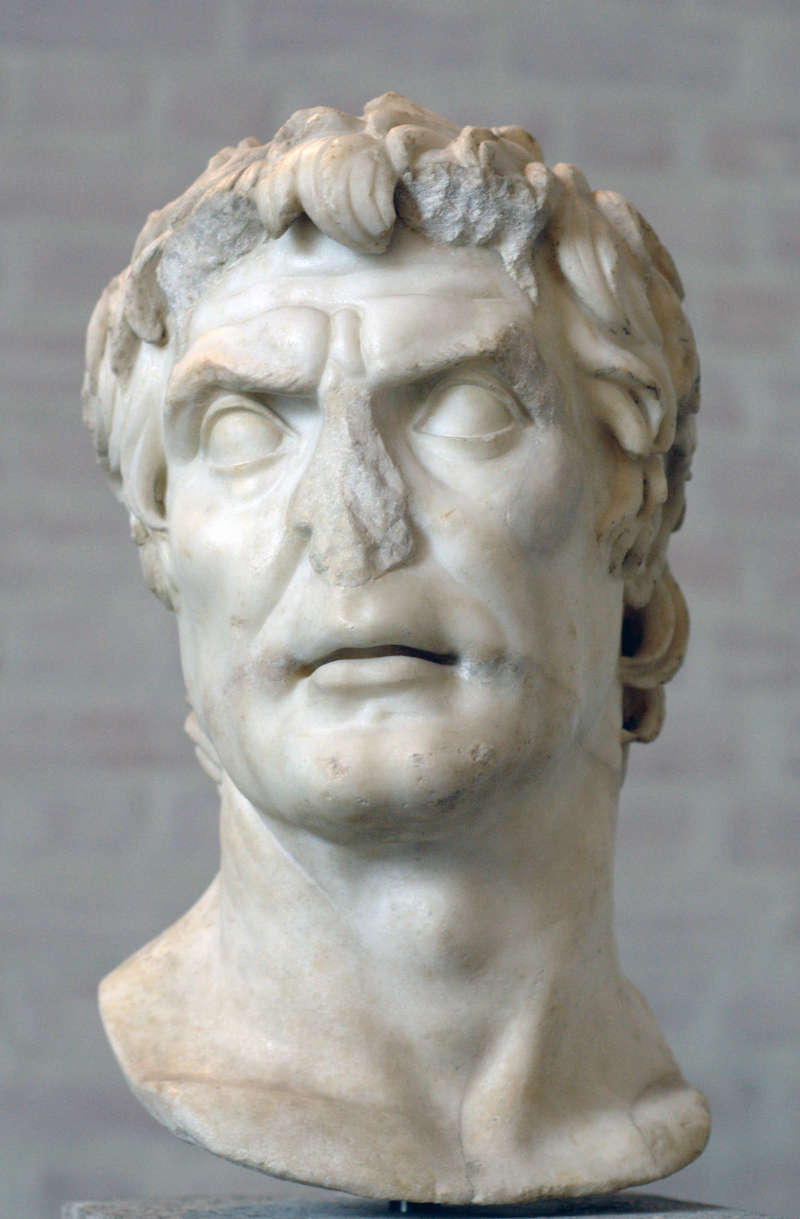
wikiwand.com 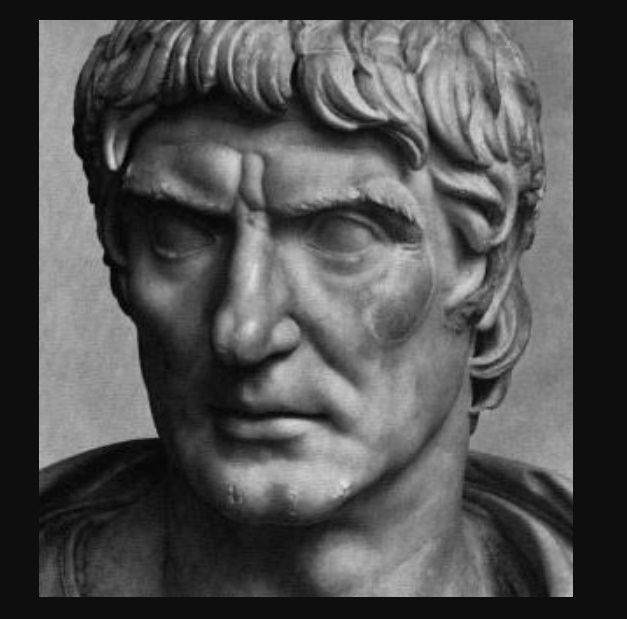
sites.google.com -
One of the most famous Roman generals is Gnaeus Pompeius Magnus. He (29 September 106 BC – 28 September 48 BC), also known as Pompey or Pompey the Great in English, was a prominent Roman general and statesman. He played a key part in the development of Rome from republic to empire. He was a disciple of Roman general Sulla as well as a political ally and later adversary of Julius Caesar.
Pompey, a senatorial nobility member, began his military career when he was still young. He rose to notoriety as a commander in the dictator Sulla's civil war in 83-82 BC. Pompey's early success as a general allowed him to skip the conventional cursus honorum and move directly to his first Roman consulship (the required steps to advance in a political career). On three occasions, he was chosen as Roman consul. He achieved three Roman triumphs and served as a commander in the Sertorian War, the Third Servile War, the Third Mithridatic War, and several other military battles. Pompey's early success earned him the title Magnus, which means "the Great," after his childhood hero Alexander the Great.
Pompey joined Crassus and Caesar in the First Triumvirate military-political alliance in 60 BC. This alliance was strengthened when Pompey married Caesar's daughter, Julia. Following the deaths of Crassus and Julia, Pompey became an ardent supporter of the optimates, a conservative faction of the Roman Senate. Pompey and Caesar then began competing for overall leadership of the Roman state, which eventually led to Caesar's Civil War. Pompey was defeated at the Battle of Pharsalus in 48 BC, and he fled to Ptolemaic Egypt, where he was killed in a plot by Ptolemy XIII's courtiers.
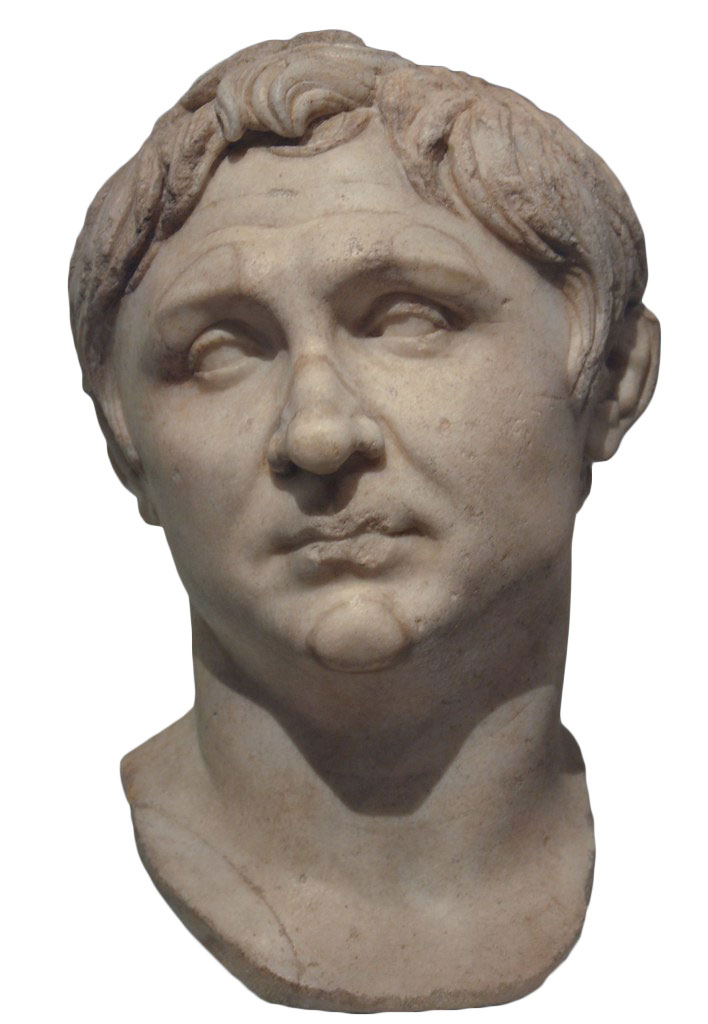
roman-empire.net 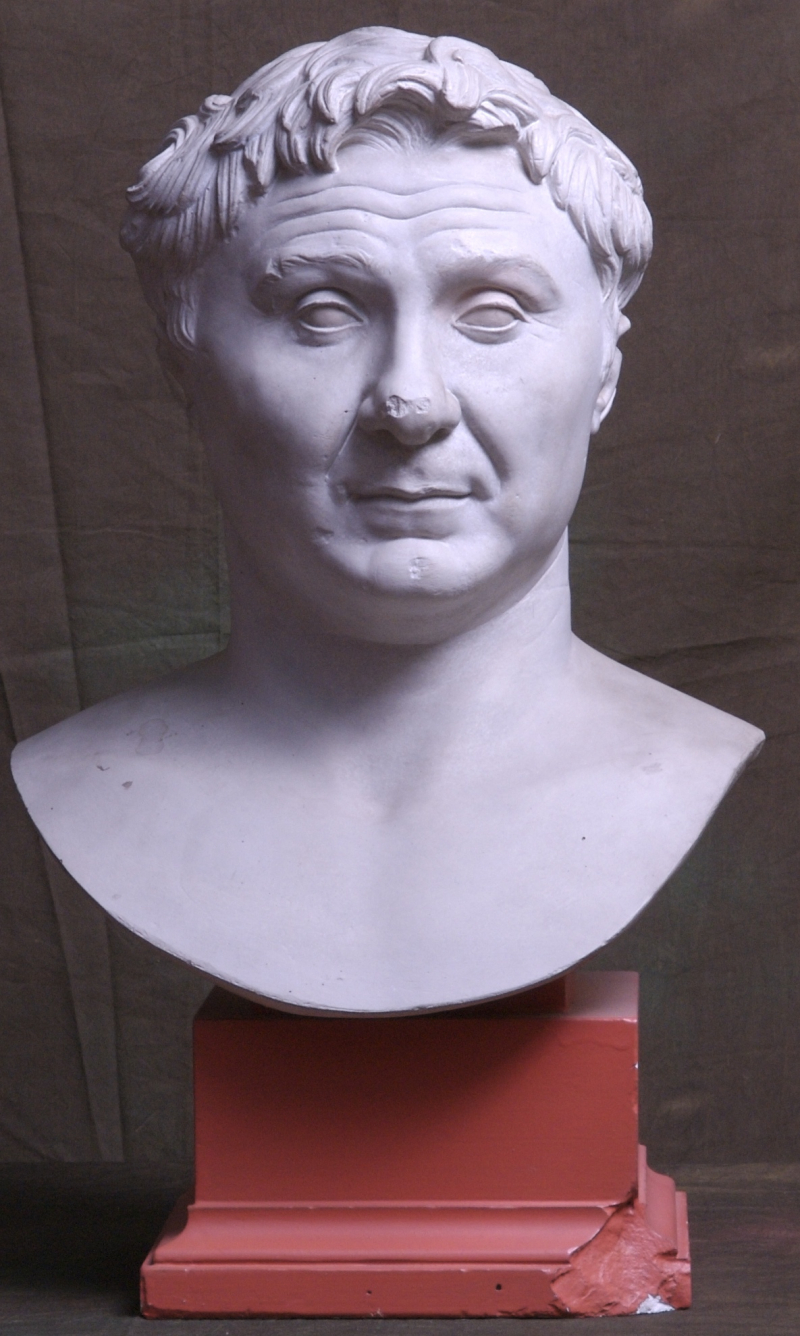
museum.classics.cam.ac.uk -
Gaius Julius Caesar was a Roman general and statesman who lived from 12 July 100 BC to 15 March 44 BC. Caesar, a member of the First Triumvirate, led Roman legions in the Gallic Wars before defeating his political adversary Pompey in a civil war and becoming dictator of Rome from 49 BC until his assassination in 44 BC. He was a key figure in the events that led to the Roman Republic's demise and the emergence of the Roman Empire.
Caesar emerged to become one of the Roman Republic's most influential politicians after a series of military triumphs in the Gallic Wars, which were completed by 51 BC and considerably expanded Roman territory. With the Gallic Wars over, the Senate ordered Caesar to relinquish command of the army and return to Rome. In 49 BC, Caesar openly rejected the Senate's authority by crossing the Rubicon and marching with an army toward Rome. This sparked Caesar's civil war, which he won, giving him virtually unrivaled power and influence in 45 BC.
Caesar was a skilled novelist, historian, and statesman, and much of his life is known from his own chronicles of his military battles. Other contemporary sources include Cicero's letters and speeches, as well as Sallust's historical writings. Suetonius' and Plutarch's later biographies of Caesar are additional key sources. Many historians regard Caesar as one of history's greatest military leaders. His cognomen became a synonym for "Emperor"; the title "Caesar" was used across the Roman Empire, giving birth to modern cognates like Kaiser and Tsar. He has appeared frequently in literary and creative works, and his political doctrine, known as Caesarism, has influenced politicians into the contemporary age, as well as had important use and impact in the establishment of Populism.
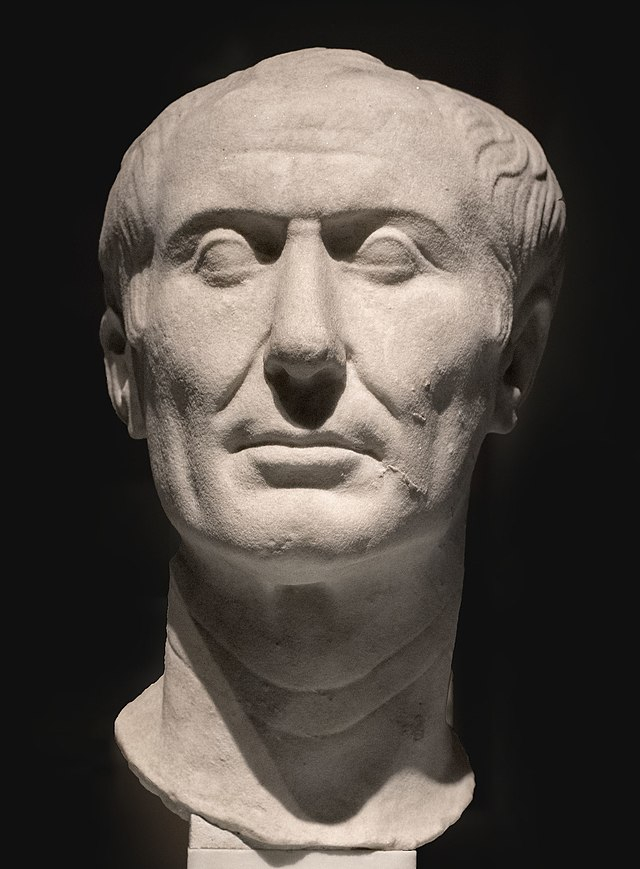
vi.wikipedia.org 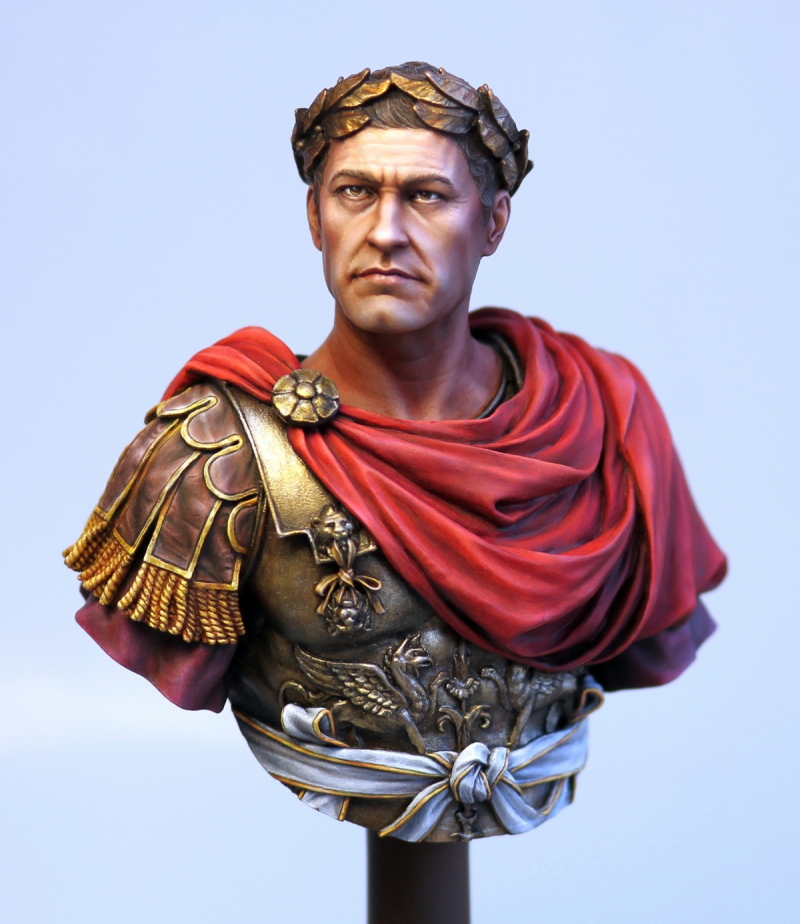
puttyandpaint.com -
Marcus Antonius (14 January 83 BC – 1 August 30 BC), sometimes known as Mark Antony in English, was a Roman politician and general who was instrumental in transforming the Roman Republic from a constitutional republic to an authoritarian Roman Empire.
Antony was Julius Caesar's relative and supporter, and he served as one of his generals during the conquest of Gaul and the Civil War. While Caesar removed political opponents in Greece, North Africa, and Spain, Antony was the designated administrator of Italy. Following Caesar's assassination in 44 BC, Antony joined forces with Marcus Aemilius Lepidus, another of Caesar's generals, and Octavian, Caesar's great-nephew and adopted son, to form the Second Triumvirate. The Triumvirs defeated Caesar's killers, the Liberatores, in the Battle of Philippi in 42 BC, and split the Republic's leadership among themselves. Antony was transferred to Rome's eastern provinces, which included the client state of Egypt, which was controlled by Cleopatra VII Philopator at the time, and was given command of Rome's war against Parthia.
In 36 BC, Lepidus was expelled from the association, and in 33 BC, disagreements between Antony and Octavian split the remaining Triumvirs. Their long-standing feud exploded into civil war in 31 BC, when the Roman Senate, led by Octavian, declared war on Cleopatra and labeled Antony a traitor. Later that year, at the Battle of Actium, Antony was defeated by Octavian's soldiers. Antony and Cleopatra escaped to Egypt, where they committed suicide after being defeated at the Battle of Alexandria. With Antony's death, Octavian assumed control of the Roman world. Octavian was given the title of Augustus in 27 BC, completing the transformation of the Roman Republic into an empire, with himself as the first Roman emperor.
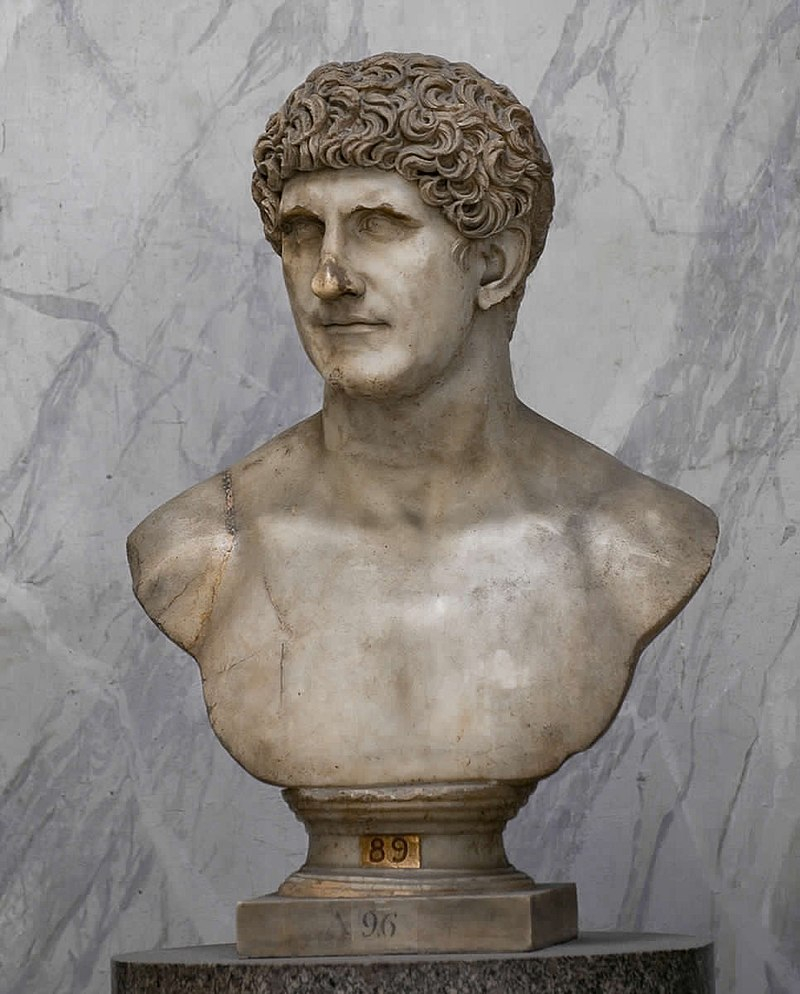
vi.wikipedia.org 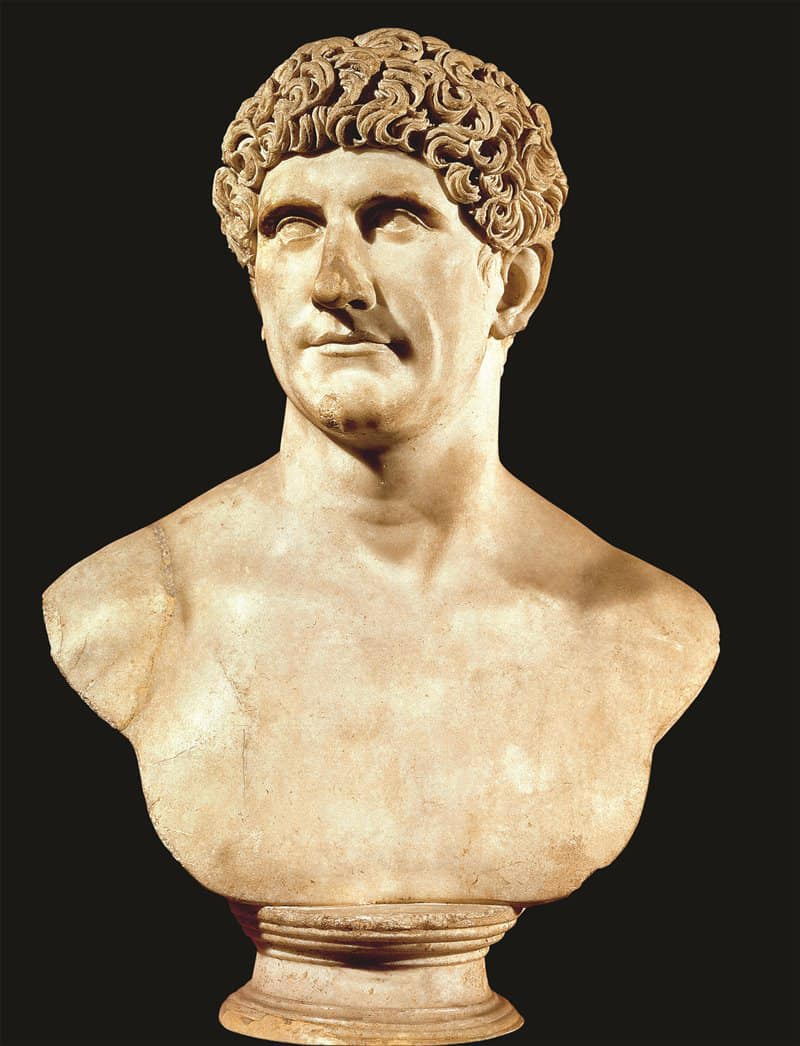
en.wikipedia.org -
Marcus Vipsanius Agrippa (c. 63 BC – 12 BC) was a Roman general, statesman, and builder who was Augustus' intimate friend, son-in-law, and lieutenant. He is well remembered for his significant military triumphs, most notably the Battle of Actium in 31 BC against Mark Antony and Cleopatra's armies.
Born to a plebeian family in an unknown place in Roman Italy in 63 BC, he met the future emperor Augustus, then known as Octavian, at Apollonia in Illyria. After his great-uncle Julius Caesar was assassinated in 44 BC, Octavian went to Italy. He was chosen tribune of the plebs around this period. Agrippa fought as a military commander in the Battle of Philippi, alongside Octavian and Caesar's former general and right-hand man Mark Antony. In 38 BC, he put down an Aquitanian uprising and defeated the Germanic tribes. He was consul for 37 BC, significantly younger than the usual minimum age of 43, to oversee military preparations against Sextus Pompey, who had shut off food imports to Rome.
In 36 BC, Agrippa defeated Pompey in the wars of Mylae and Naulochus. In 31 BC, Agrippa led the victorious Octavian navy at the Battle of Actium. Following the victory at Actium, Octavian was elevated to the throne and given the title Augustus, while Agrippa remained his close friend and lieutenant. He was also given powers comparable to those of Augustus. He possessed veto power over Senate acts and the authority to bring laws to the People for approval. He died between the ages of 50 and 51 in 12 BC. Augustus paid tribute to his memory with a splendid burial and mourned for over a month. His remains were interred in Augustus' tomb.
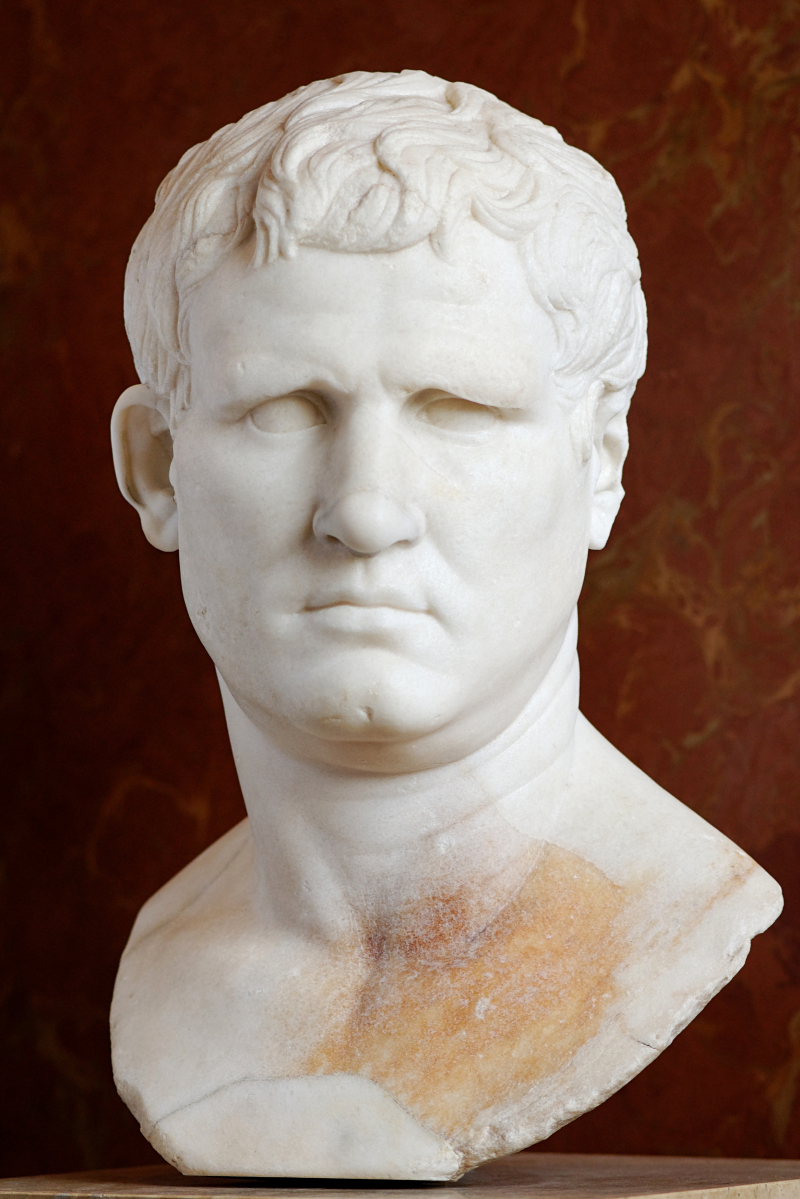
en.wikipedia.org 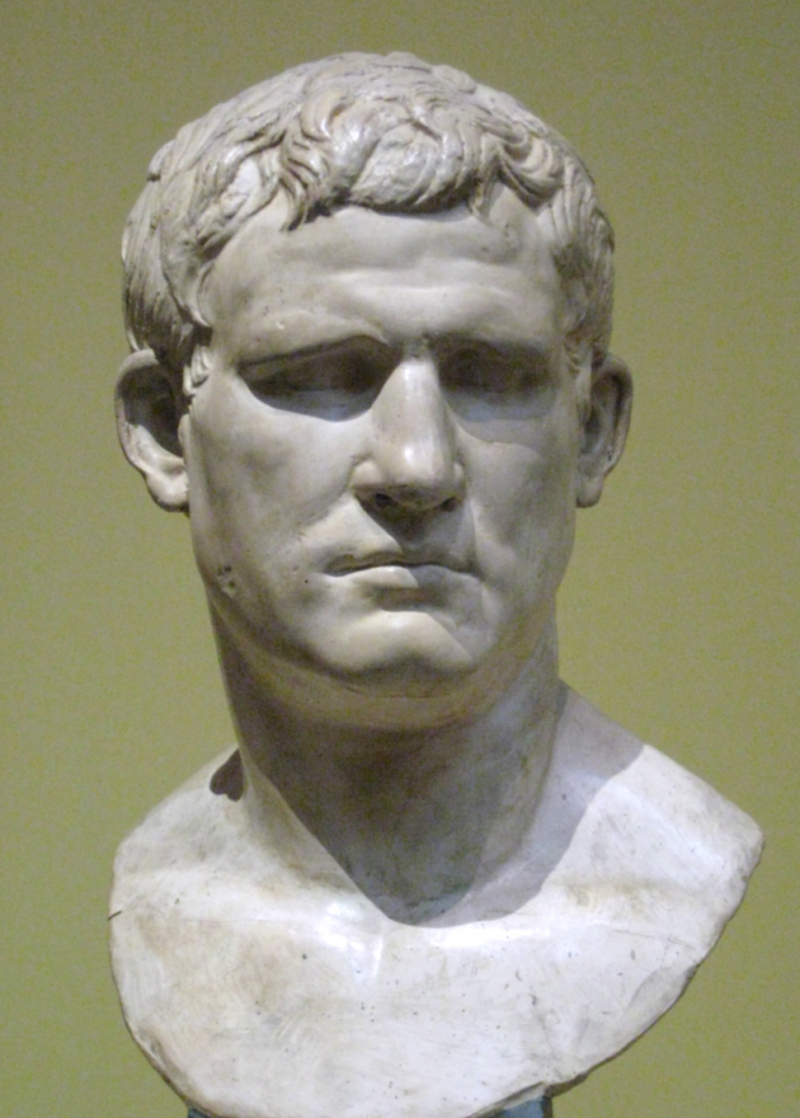
en.wikipedia.org -
Nero Claudius Drusus Germanicus (38-9 BC), usually known as Drusus the Elder, was a Roman statesman and general. His natal father was a patrician Claudian, but his maternal grandmother was from a plebeian household. He was the legitimate stepson of Livia Drusilla's second husband, Emperor Augustus. He was also Emperor Tiberius' brother, Emperor Claudius' father and General Germanicus' father, Emperor Caligula's paternal grandpa, and Emperor Nero's maternal great-grandfather.
He led the first major Roman campaigns beyond the Rhine and initiated Germania's conquest, being the first Roman general to reach the Weser and Elbe rivers. Drusus launched a successful invasion into Germania in 12 BC, subjugating the Sicambri. Later the same year, he launched a naval expedition against Germanic tribes along the North Sea coast, defeating the Chauci near the mouth of the Weser and conquering the Batavi and Frisii. He defeated the Usipetes and the Marsi in 11 BC, expanding the Roman rule to the Upper Weser. He started a battle against the Chatti and the resurrected Sicambri in 10 BC, subjugating both. While acting as consul the next year, he overcame the Mattiaci and defeated the Marcomanni and the Cherusci, the latter near the Elbe.
Drusus was returning from his march to the Elbe when he fell from his horse and stayed for a month, by which time Tiberius had joined him. He wrote a letter to Tiberius shortly before his death, complaining about the manner in which Augustus ruled. Suetonius relates that he refused to return to Rome immediately before his death. Drusus' body was returned to the city, and his ashes were interred in the Augustus Mausoleum. He remained extremely popular among the legionaries, who erected a monument in his honor (the Drususstein) in Mogontiacum (modern Mainz).
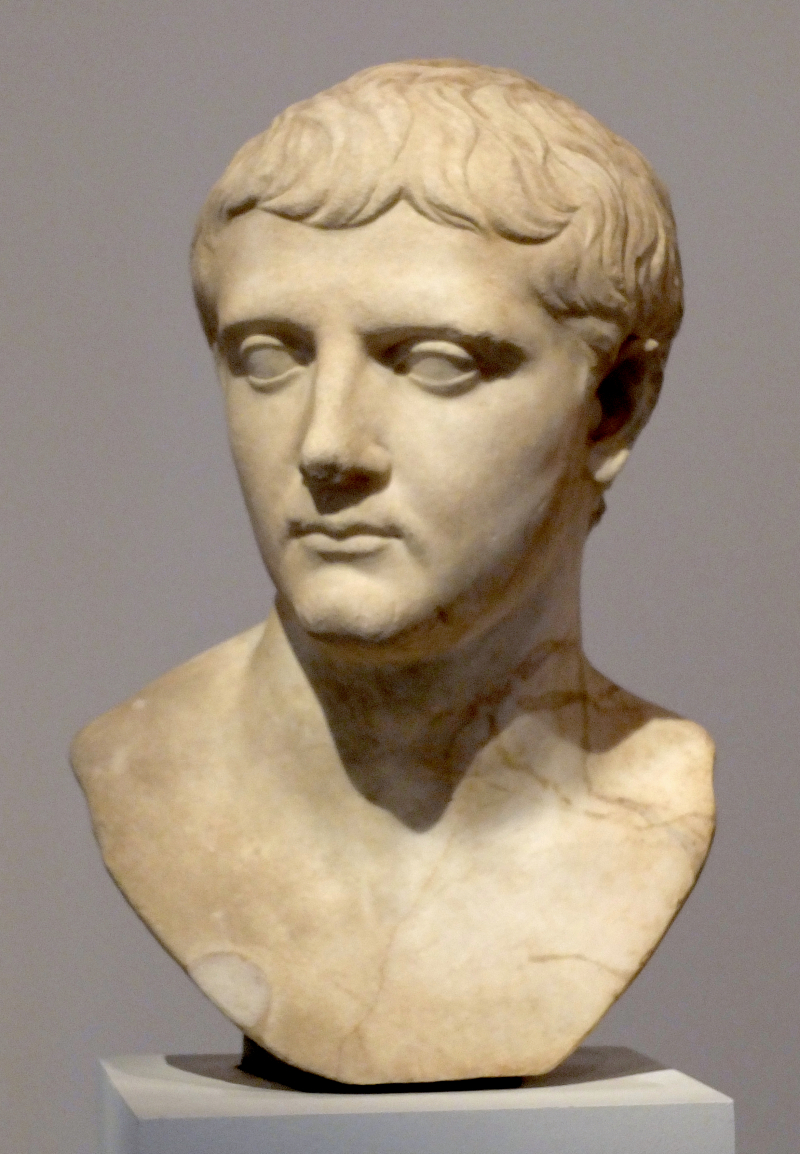
en.wikipedia.org 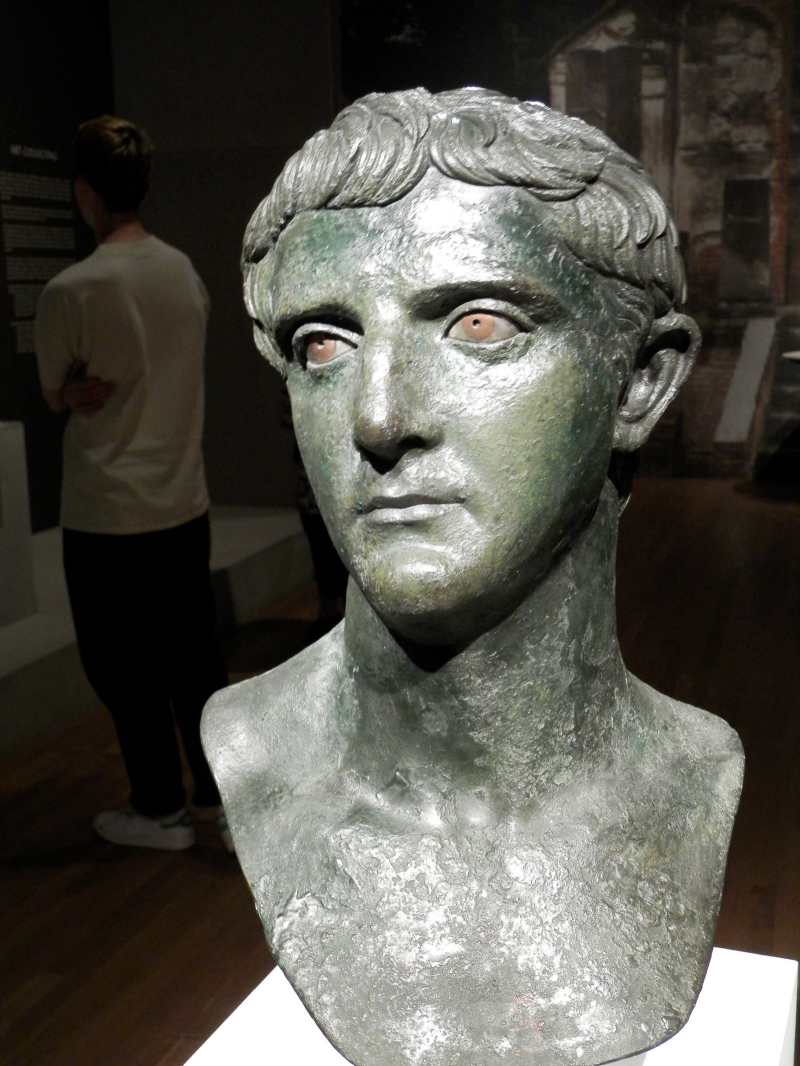
en.wikipedia.org/ -
Gnaeus Julius Agricola (13 June 40 – 23 August 93) was a Roman general and politician who was instrumental in the Roman conquest of Britain. Agricola, who was born into a senatorial family, began his military career as a military tribune under Governor Gaius Suetonius Paulinus. Later in his career, he held a number of governmental roles in Rome. He was appointed quaestor of Asia province in 64. He was chosen Plebeian Tribune two years later, and Praetor in 68. He backed Vespasian, the legate of Syria, in his bid for the throne during the Year of the Four Emperors in 69.
During the year of the civil war, Britain revolted, and Bolanus was a gentle governor. Agricola restored legion discipline and contributed to the consolidation of Roman control. Bolanus was deposed in 71 by a more active ruler, Quintus Petillius Cerialis, and Agricola was free to demonstrate his abilities as a commander in wars against the Brigantes in northern England.
When Agricola's command ended in 73, he was made a patrician and appointed to administer Gallia Aquitania. He stayed for nearly three years. He was recalled to Rome and made suffect consul in 76 or 77, and he married his daughter to Tacitus. Tacitus and Julia married the following year, while Agricola was nominated to the College of Pontiffs and went to Britain for the third time as its governor.
Agricola was declared a patrician and appointed governor of Gallia Aquitania when Vespasian became Emperor. He finished the conquest of what is now Wales and northern England as governor, and marched his army to the far north of Scotland, erecting forts throughout most of the lowlands. Emperor Domitian recalled Agricola from Britain in 85 after an exceptionally long tenure. He retired from the military and from public life after his return. Agricola died at the age of 53 on his family lands in Gallia Narbonensis in 93. Rumors arose that the death was caused by a poison provided by Emperor Domitian, but no conclusive evidence was ever proven.
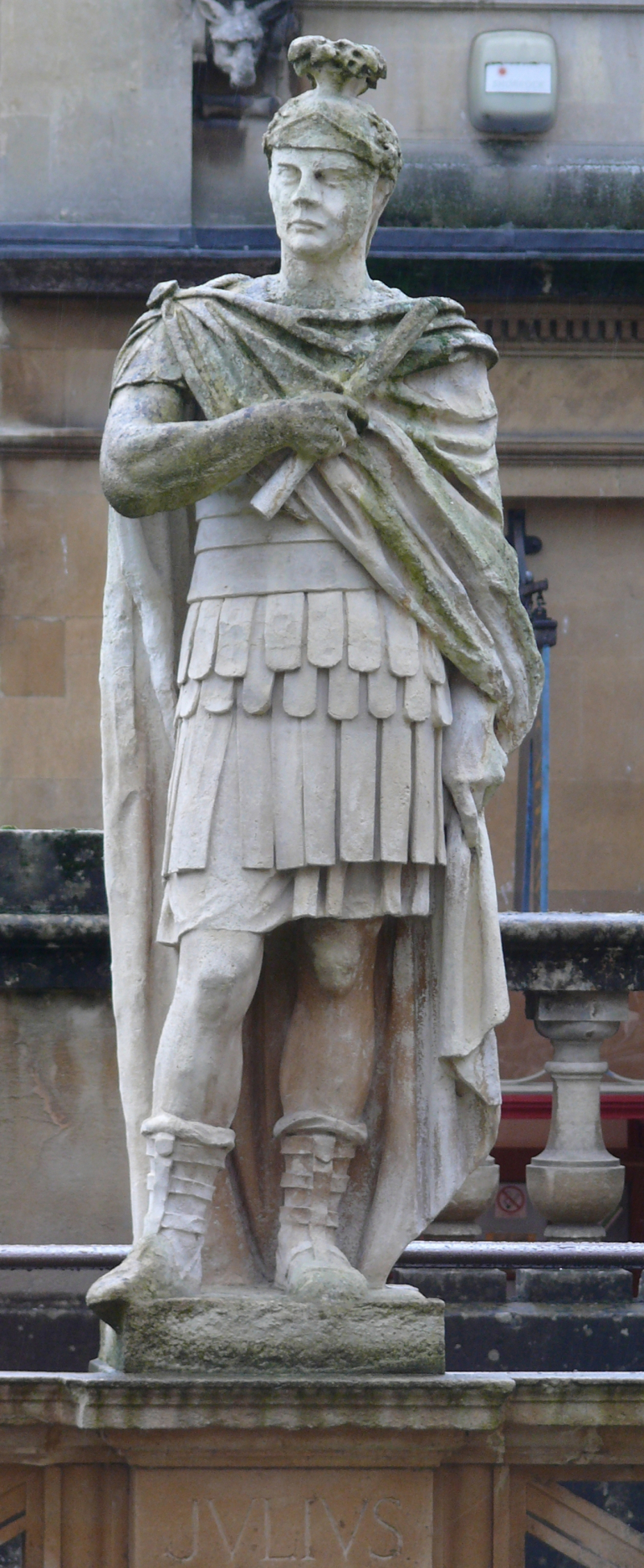
en.wikipedia.org 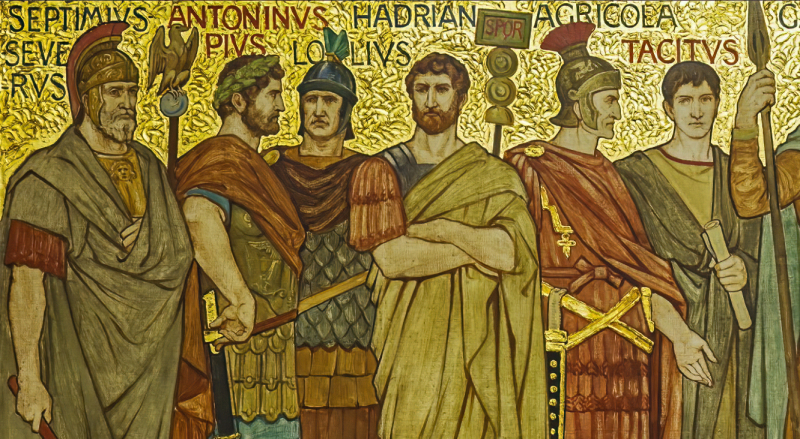
Agricola among Roman generals and emperors -en.wikipedia.org -
Trajan (Caesar Nerva Traianus; 18 September 53 – 9/11 August 117) was the Emperor of Rome from 98 to 117. Trajan is recognized as a successful soldier-emperor who presided over one of the biggest military expansions in Roman history and led the empire to its highest territorial size by the time of his death. He was officially dubbed Optimus Princeps ("best ruler") by the Senate. He is also remembered for his philanthropic rule, which included overseeing extensive public building programs and implementing social welfare policies, earning him the title of the second of the Five Good Emperors who presided over an era of peace within the Empire and prosperity in the Mediterranean world.
Trajan was born in Italica, a Roman city of Italic settlers in the province of Hispania Baetica near contemporary Seville in present-day Spain. Although some ancient authors claimed that Trajan was of provincial origins, his branch of the Ulpia gens, the Ulpi Traiani, originated in the Italian city of Todi in Umbria; they were either among the original settlers of Italica or part of the groups who later moved in the town between the third and first centuries BC. Trajan was born into a senatorial family because his father, Marcus Ulpius Traianus, was also born in Hispania. Trajan rose to prominence during Emperor Domitian's reign. Trajan assisted Domitian against a Rhine insurrection led by Antonius Saturninus while serving as a legatus legionis in Hispania Tarraconensis in 89. Domitian was succeeded in September 96 by the elderly and childless Nerva, who was unpopular with the army. After a brief and turbulent year in rule, culminating in an uprising by Praetorian Guard troops, he chose the more popular Trajan as his heir and successor. Nerva died in 98, and his adoptive son took over without incident.
Trajan is most recognized as a civilian administrator for his vast public building program, which altered Rome and left numerous enduring buildings such as Trajan's Forum, Trajan's Market, and Trajan's Column. He acquired the Nabataean Kingdom early in his reign, establishing the province of Arabia Petraea. His conquest of Dacia considerably enriched the empire, as the new region contained numerous precious gold mines. Trajan's battle against the Parthian Empire resulted in the capture of Ctesiphon as well as the conquest of Armenia, Mesopotamia, and Assyria. Trajan was unwell and died of a stroke in the city of Selinus in late 117 while traveling back to Rome. The Senate and Trajan's cousin and successor, Hadrian, whom Trajan allegedly adopted on his deathbed, both deified him. Trajan's ashes, according to tradition, were interred in a small room beneath Trajan's Column.
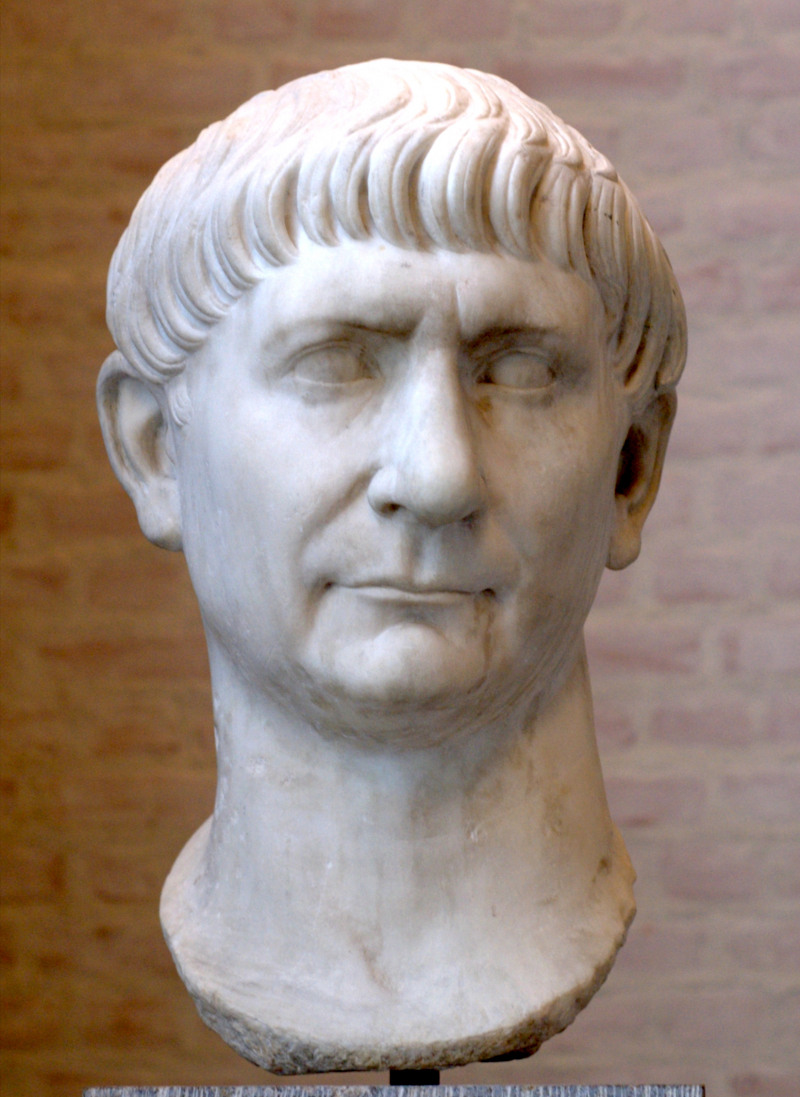
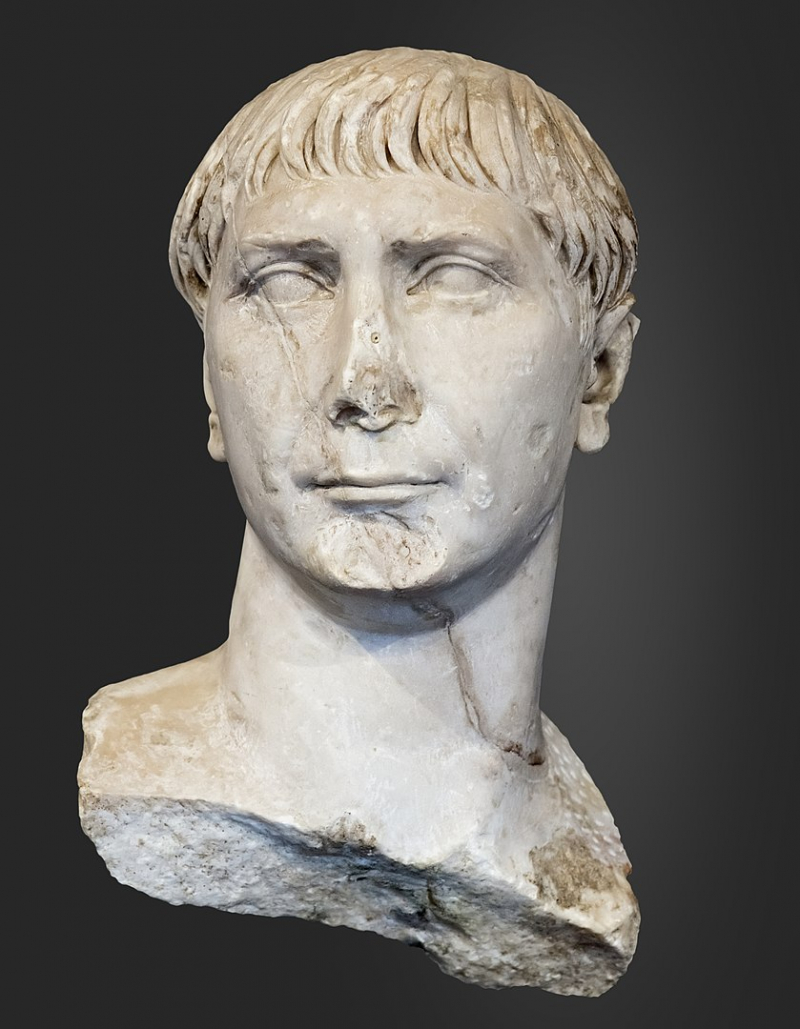
-
From 193 to 211, Lucius Septimius Severus (11 April 145 – 4 February 211) was the Roman Emperor. He was born in the Roman province of Africa in Leptis Magna (modern-day Al-Khums, Libya). He rose through the ranks of government as a young man during the reigns of Marcus Aurelius and Commodus. During the Year of the Five Emperors in 193, Severus seized power following the death of Emperor Pertinax.
Severus fought his rival claims, the Roman generals Pescennius Niger and Clodius Albinus, after deposing and executing the existing emperor Didius Julianus. Niger was defeated at the Battle of Issus in Cilicia in 194. Later that year, Severus launched a brief punitive war across the eastern border, and annexed the Kingdom of Osroene as a new province. Three years later, in the Battle of Lugdunum in Gaul, Severus defeated Albinus. Following the strengthening of his dominance over the western provinces, Severus conducted a brief, more successful war against the Parthian Empire in the east, sacking their capital Ctesiphon in 197 and stretching the eastern frontier to the Tigris. He then strengthened and expanded the Limes Arabicus in Arabia Petraea. In 202, he campaigned against the Garamantes in Africa and Mauretania, seizing their capital Garama and expanding the Limes Tripolitanus along the empire's southern desert frontier.
In 208, Severus visited Britain, reinforcing Hadrian's Wall and retaking the Antonine Wall. He invaded Caledonia (modern Scotland) with an army of 50,000 men in 209, but his goals were dashed when he died of an infectious ailment in late 210. He died in early 211 at Eboracum (now York, England), and was succeeded by his sons, who were guided by their mother and his strong widow, Julia Domna, and so established the Severan dynasty. It was the Roman Empire's final dynasty before the Third Century Crisis.
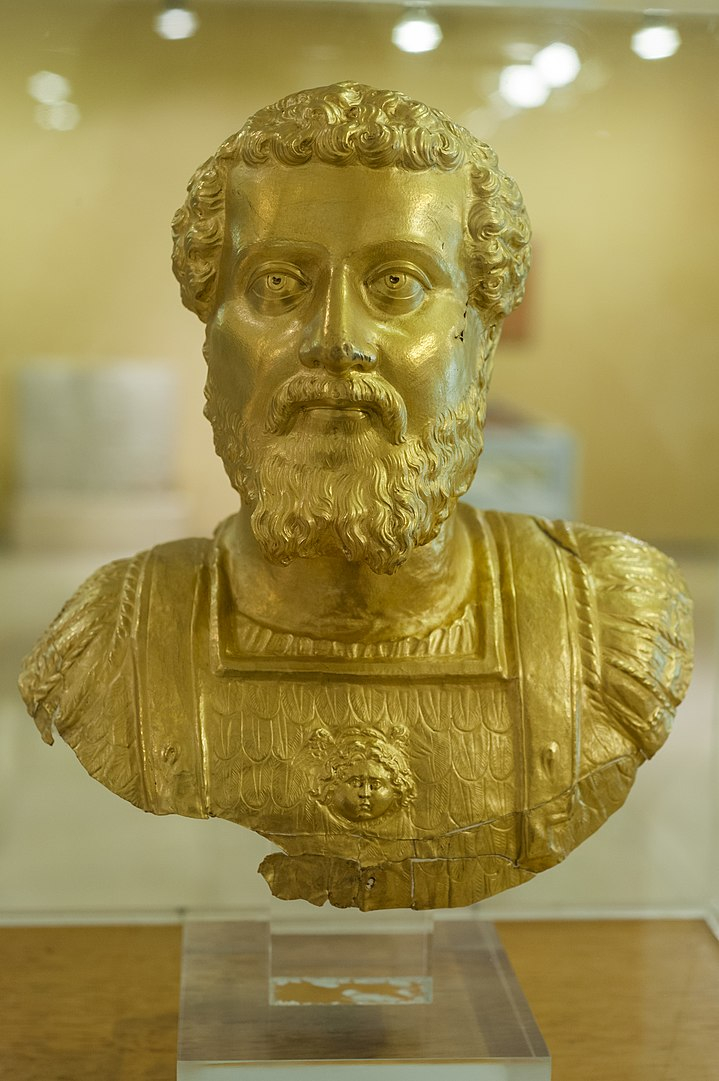
en.wikipedia.org 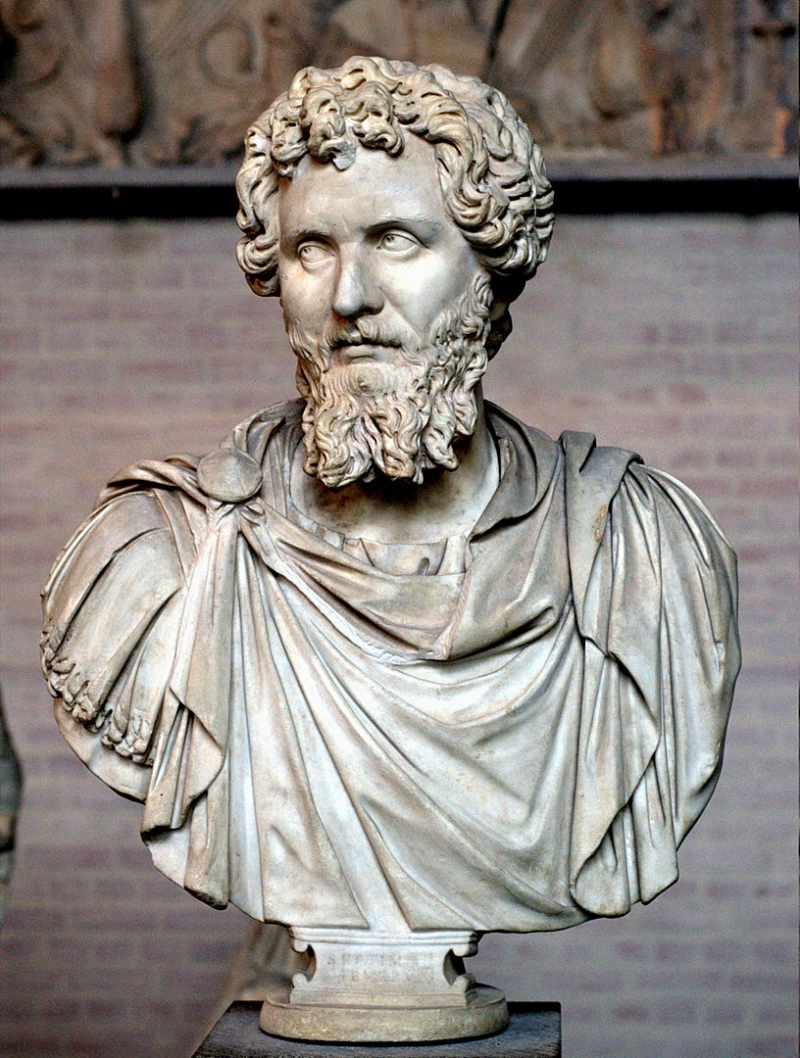
en.wikipedia.org -
Constantine I (27 February c. 272 – 22 May 337), usually known as Constantine the Great, was the first Roman Emperor to convert to Christianity and reigned from 306 to 337 AD. He was born at Naissus, Dacia Mediterranea (now Ni, Serbia), the son of Flavius Constantius, a Roman army officer of Illyrian ancestry who was one of the Tetrarchy's four kings. Helena, his mother, was a Greek Christian of humble birth. Constantine distinguished himself during the reigns of Diocletian and Galerius, the Roman emperors. He began his career in the eastern provinces (against barbarians and Persians), before being called back to the west (in AD 305) to battle alongside his father in Britain. After his father died in 306, Constantine ascended to the throne. He was hailed by his army at Eboracum (York, England) and eventually defeated emperors Maxentius and Licinius in civil wars to become the sole ruler of the Roman Empire by 324.
The Roman army was restructured to include mobile units and garrison forces capable of dealing with domestic problems and barbarian invasions. Constantine launched victorious operations against the tribes on the Roman frontiers and repopulated lands abandoned by his predecessors during the Third Century Crisis with Roman citizens.
Constantine's reign was a distinct phase in Roman Empire history and a watershed moment in the transition from classical antiquity to the Middle Ages. He constructed a new imperial house in Byzantium and christened it Constantinople after himself. It later became the empire's capital for over a thousand years, and modern historians refer to the later Eastern Roman Empire as the Byzantine Empire. By leaving the empire to his sons and other members of the Constantinian dynasty, he effectively replaced Diocletian's Tetrarchy with the de facto principle of dynastic succession. His renown flourished during his children's lives and for generations following his rule. The medieval church regarded him as a model of virtue, while secular monarchs regarded him as a model, a reference point, and a symbol of imperial legitimacy and identity. Due to the rediscovery of anti-Constantinian writings, there were more negative assessments of his reign beginning with the Renaissance.
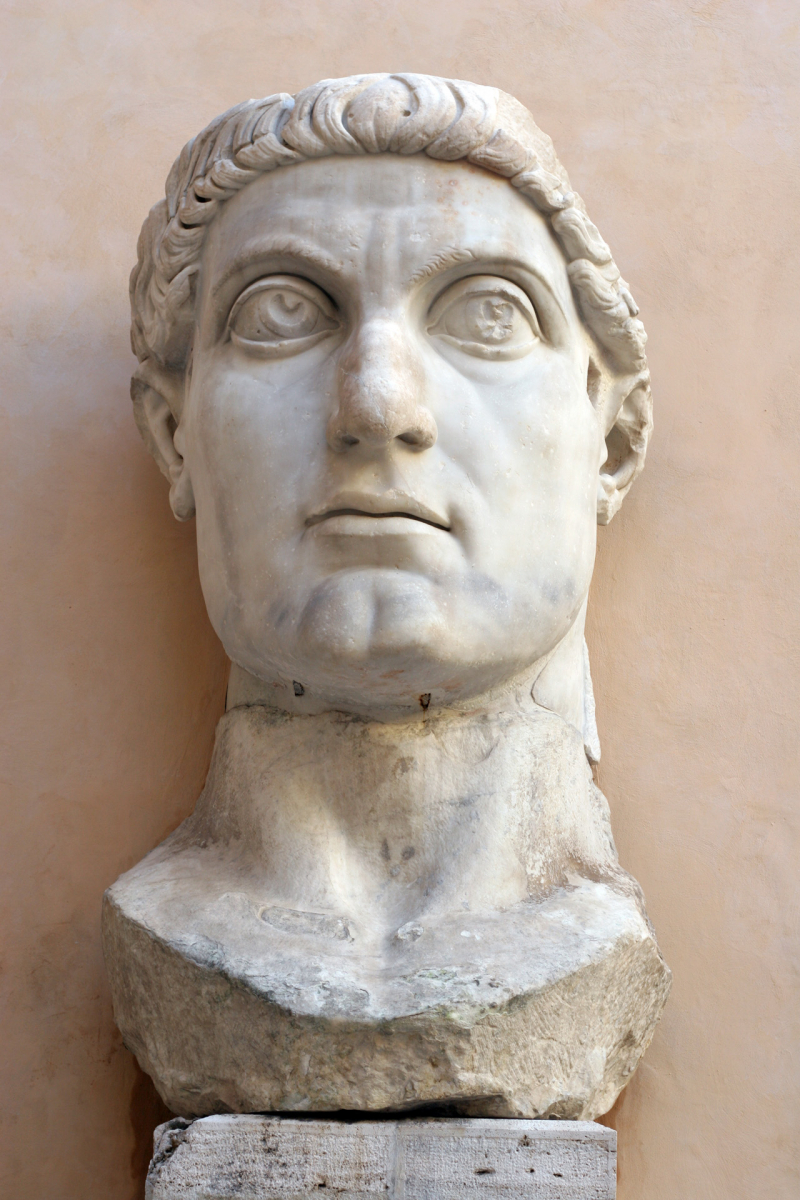
en.wikipedia.org 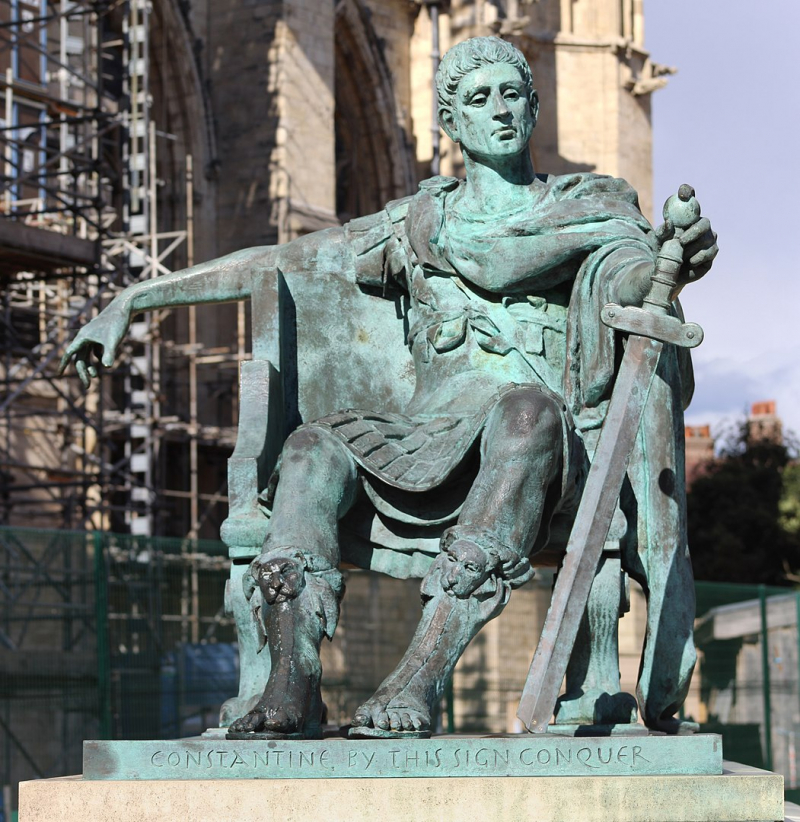
en.wikipedia.org -
One of the most famous Roman generals you should know is Flavius Aetius. He (c. 390 – 454) was a Roman general and statesman of the Western Roman Empire's final years. For two decades, he was a military leader and the most powerful man in the Empire (433–454). He oversaw policy in response to barbarian federate raids throughout the West. Notably, he led a large Roman and allied (foederati) army in the Battle of the Catalaunian Plains, which ended Attila's devastating invasion of Gaul in 451, though the Hun and his subjugated allies still managed to invade Italy the following year, an incursion best remembered for the ruthless Sack of Aquileia and Pope Leo I's intercession.
Aetius was commonly referred to as the "Last of the Romans." For his victory on the Catalaunian Plains, Edward Gibbon refers to him as "the man generally revered as the fear of Barbarians and the support of the Republic." Aetius is widely regarded as a superb military commander; indeed, the Eastern Roman Empire held him in such high regard that he became known as the last true Roman of the west. Historians have always regarded the Battle of the Catalaunian Plains as crucial in hurting Attila by undermining his illusion of invincibility. From 433 to 454, Aetius effectively administered the western empire and strove to establish its European borders in the face of a deluge of barbarians. One of his most notable accomplishments was the formation of the coalition against Attila.
Aetius is widely regarded as one of the finest Roman military commanders of all time, as well as an outstanding diplomat and administrator. Because of his foresight in the capacity to provision treaties and commitments, the Battle of the Catalaunian Plains is more a monument to his political aptitude than his military abilities. Aetius and his army are claimed to have been one of the most effective Roman armies ever, with their speed and mobility indicating a highly efficient logistics and manpower resupply system.
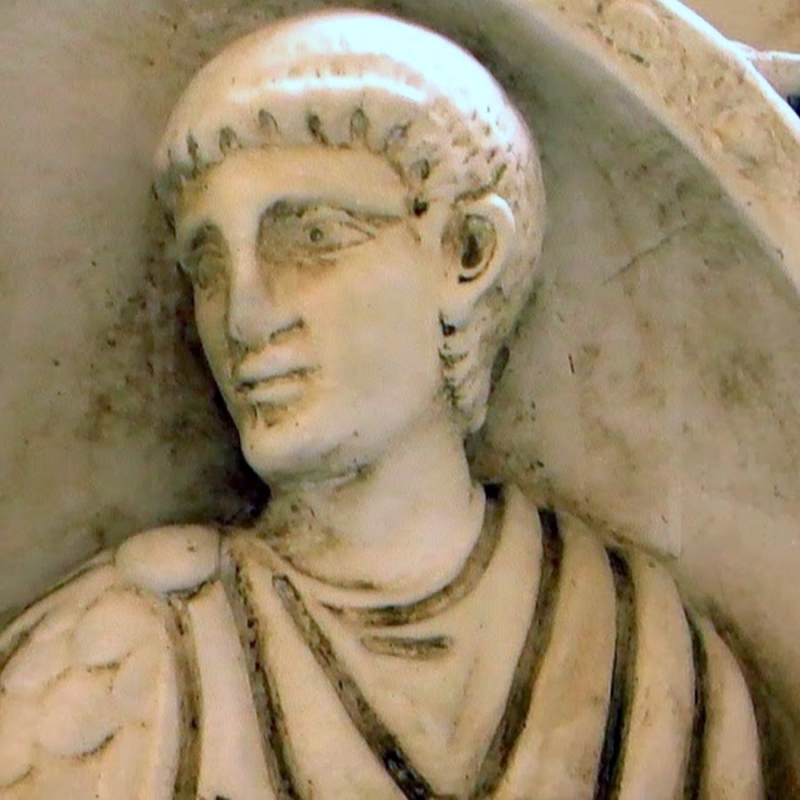
en.wikipedia.org 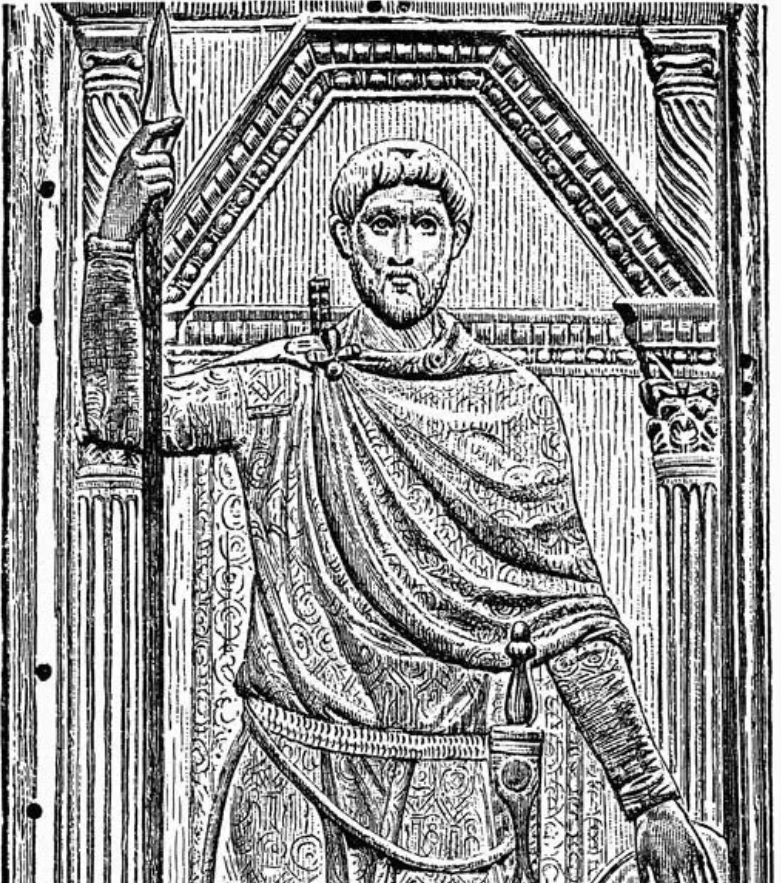
britannica.com














